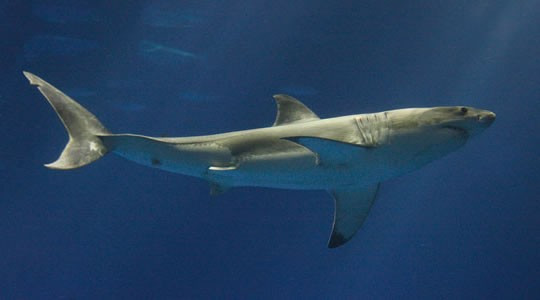Huge Shark Sanctuary Declared in Pacific Ocean

Killing sharks is set to be banned across a huge area of the Pacific Ocean after the Marshall Islands government decided to create the largest shark sanctuary in the world.
The protected area covering nearly 2 million sq km (750,000 sq miles) of ocean, about eight times the size of Britain.
The move came as sharks are seriously threatened by fishing and habitat loss and approximately a third of ocean-going sharks are on the internationally recognised Red List of Threatened Species.
The Pacific republic will ban trade in shark products and commercial shark fishing throughout the protection zone, and any shark accidentally caught must be released alive.
The Marshall Islands archipelago, where just 68,000 people live, relies on tourism, with diving being very popular.
"In passing this ill, there is no greater statement we can make about the importance of sharks to our culture, environment and economy," said Sen. Tony deBrum, who co-sponsored the bill through the Marshallese parliament.
"Ours may be a small island nation, but our waters are now the biggest place sharks are protected."
To sanctuary is so large that it covers roughly the same area as Mexico and is about eight times bigger than the UK.
Along with the shark fishing ban, certain designs of fishing gear will also be banned from Marshallese waters and fines will go up to £200,000.
"We salute the Republic of the Marshall Islands for enacting the strongest legislation to protect sharks that we have seen," said Matt Rand, Pew's director of global shark conservation.
"As leaders recognise the importance of healthy shark populations to our oceans, the momentum for protecting these animals continues to spread across the globe."
Two years ago, Palau took the lead, establishing a sanctuary which was at the time the largest in the world. The move was also later on followed by the Bahamas.
Mexico, Honduras, the Maldives and the Northern Mariana Islands recently signed a declaration indicating they would push for more shark protection across the world.
Sharks tend to be vulnerable and greatly affected by targeted or accidental fishing as they grow and reproduce rather slowly, but it now remains to see if the countries pushing for more law protecting sharks can cope with monitoring such huge expanses of ocean.
© Copyright IBTimes 2025. All rights reserved.





















